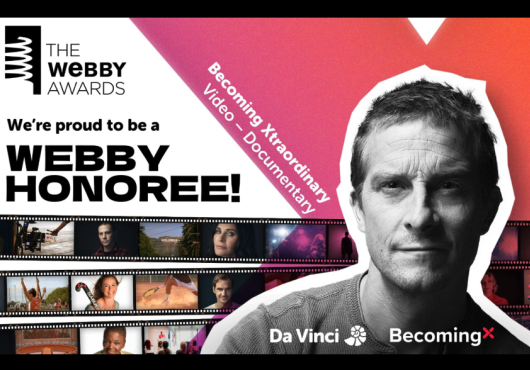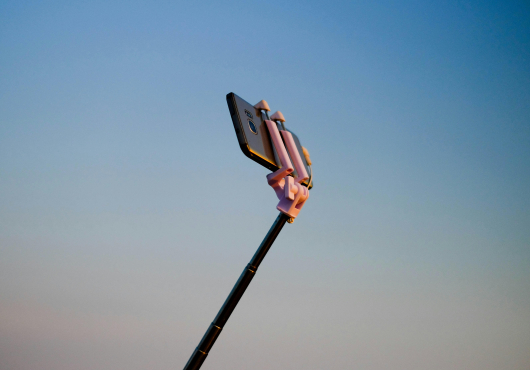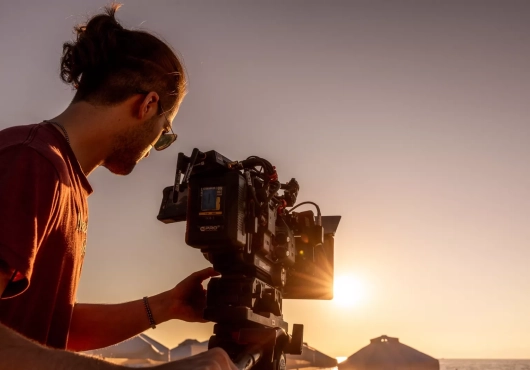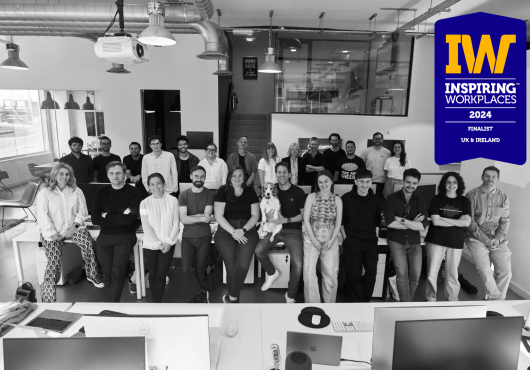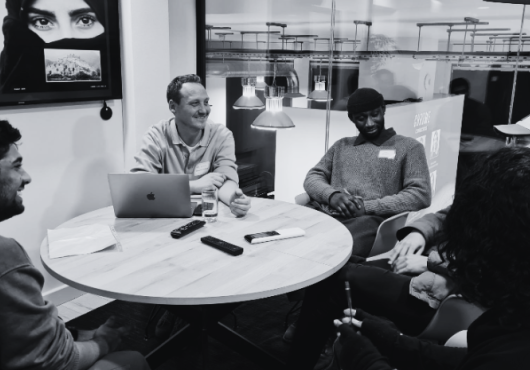
Mar 2024
Chrome Productions: Embracing the Non-Traditional Agency Model
AdAge: a response from Chrome CEO and Founder, Joel Mishcon
Last week I came across this article from AdAge, in a way bemoaning the traditional agency model.
I found myself nodding along, because there on that page seemed to be a healthy bit of affirmation. AdAge spoke about a new way of working, a model built for today’s content needs, which was pretty much spot on with how, and why, we’ve built Chrome (just without really ever thinking about it).
Although I founded Chrome 20 years ago, it wasn’t until halfway through our journey that a clear vision for our business model became clear. Brands were just starting to need video for the internet. It was obvious they were going to need a lot of content but none of our clients at the time really knew how to generate that level of output, and they certainly didn’t have the budgets to fund it. I believed back then that a new type of production company model was needed - one that would be able to take the spend allocated for, say, one large TV commercial campaign and use it instead to produce a few high-impact digital campaigns, with other smaller film assets filtering down from the ‘heroes’.
In line with the AdAge article’s spirit of breaking free from outdated constraints, we optimised our offering to cater for this new demand, and in doing so we created a production company that had a very different DNA to the commercial houses we grew up idolising. We would end up borrowing the best working parts from both a traditional production company, and a traditional advertising agency, to create a content studio altogether more nimble, affordable, and in some ways more powerful for our clients. So, what would need to change?
First up we shunned the ‘roster of Directors’ approach. That’s not to say we don’t have a roster of incredible Directors – we do, both in-house and freelance. The difference is that we’re built on more than just our Directorial talent, and so we choose not to lead with a roster. Our clients routinely hear us say that Chrome production means choosing not just right director off a list, but rather putting together the right team for the job at every stage: Creative Lead, Producer, PM, Director, Cinematographer, Editor and even a Colourist tailored perfectly to the tone of the film. They all have to be chosen carefully, and managed in-house: that’s what we do.
We’ve built a full-service model with departments made up of Creative (Writers, Designers, Directors), Production (Producers, Production Managers, Coordinators) and Post-Production (Editors, Motion-graphic Artists, Sound Designers, Colourists), all under our roof. An unexpected benefit is that we've streamlined the entire production process, making it simpler for our clients; they don’t have to pick a director and hope the rest works out. We pride ourselves in taking responsibility for the whole project, from idea to reality.
Subsequently, that also affords us opportunities to grow our in-house talent. We’ve created an environment where new team members partner up with our more experienced talent for hands-on experience, speeding up their learning curve and setting them up for a killer future. The result is that we’re able to offer outstanding creative value, with an ambitious team that services our clients in extraordinary ways.
“But traditional agencies also have multiple departments”, you might point out. Yes, but we’ve never had account managers or swollen accounts teams working across our client projects. Instead we’re all along for the ride from start to finish and senior team involvement always goes way beyond the pitch. We've never followed the old-school hierarchy where the leadership chips in to win the project and then stays away from the real work. We tackle problems head-on, tapping into the collective wisdom of our team without the usual game of telephone. We don't ghost our clients once we win their hearts – our senior team is in the game from pitch to delivery – coincidentally another key feature of the model presented by the AdAge article.
We’ve also thrived outside of the traditional ‘retainer’ model. Sure they help with business planning and growth strategy, but I’ve personally never wanted to allow complacency or security to creep in. The old saying of “you’re only as good as your last job” is, for me, the only way to operate in a high-performance creative environment, even if we’re delivering dozens of projects for a client each year. Perhaps this mentality has helped us retain so many of our core clients over the years, but without them feeling that they must work with us for every project when there might be other companies more relevant for a particular deliverable. This works both ways. I don’t think it’s healthy for our clients to think that they own us by retaining us. I want them to be proud and excited to work with Chrome, and to want to work with us above any other option.
So for me, this non-traditional agency thing isn't just a quirky choice; it's our secret sauce. We've cranked up our creative game and delivered cost-effective solutions for our clients. In an industry where adapting to the changing tides and being innovative is the name of the game, we're tearing down that old iron triangle of ‘fast, cheap and good, pick two’, and embracing a model that works smarter, faster, and a hell of a lot more efficiently.
If you’re here for rewriting the traditional playbook, drop us a line.
Joel Mishcon - CEO and Founder
